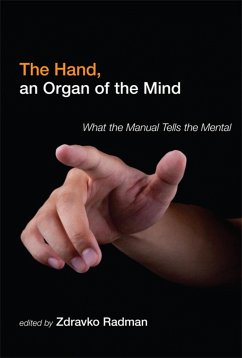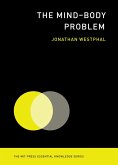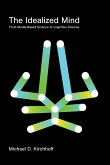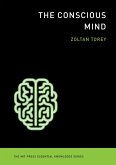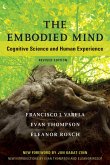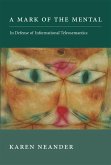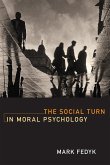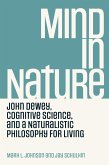Cartesian-inspired dualism enforces a theoretical distinction between the motor and the cognitive and locates the mental exclusively in the head. This collection, focusing on the hand, challenges this dichotomy, offering theoretical and empirical perspectives on the interconnectedness and interdependence of the manual and mental. The contributors explore the possibility that the hand, far from being the merely mechanical executor of preconceived mental plans, possesses its own know-how, enabling "enhanded" beings to navigate the natural, social, and cultural world without engaging propositional thought, consciousness, and deliberation.
The contributors consider not only broad philosophical questions—ranging from the nature of embodiment, enaction, and the extended mind to the phenomenology of agency—but also such specific issues as touching, grasping, gesturing, sociality, and simulation. They show that the capacities of the hand include perception (on its own and in association with other modalities), action, (extended) cognition, social interaction, and communication. Taken together, their accounts offer a handbook of cutting-edge research exploring the ways that the manual shapes and reshapes the mental and creates conditions for embodied agents to act in the world.
Contributors Matteo Baccarini, Andrew J. Bremner, Massimiliano L. Cappuccio, Andy Clark, Jonathan Cole, Dorothy Cowie, Natalie Depraz, Rosalyn Driscoll, Harry Farmer, Shaun Gallagher, Nicholas P. Holmes, Daniel D. Hutto, Angelo Maravita, Filip Mattens, Richard Menary, Jesse J. Prinz, Zdravko Radman, Matthew Ratcliffe, Etiennne B. Roesch, Stephen V. Shepherd, Susan A.J. Stuart, Manos Tsakiris, Michael Wheeler
Dieser Download kann aus rechtlichen Gründen nur mit Rechnungsadresse in A, B, BG, CY, CZ, D, DK, EW, E, FIN, F, GR, HR, H, IRL, I, LT, L, LR, M, NL, PL, P, R, S, SLO, SK ausgeliefert werden.

